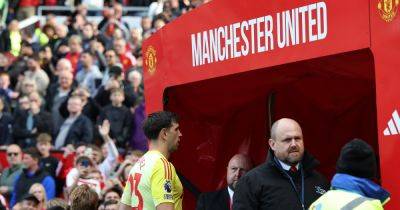Making sense of some of the evidence in the Hockey Canada sexual assault trial
WARNING: This article references sexual assault and may affect those who have experienced sexual violence or know someone impacted by it.
The sexual assault trial of five players who were on Canada's 2018 world junior hockey team isn't just being followed closely in sports circles and by advocates against gender-based violence.
The legal community is also watching the proceedings, where there have been many dramatic developments since they began in late April in London, Ont.
The accused men — who all at one time had NHL careers — are Cal Foote, Dillon Dubé, Alex Formenton, Carter Hart and Michael McLeod. All have pleaded not guilty. The charges stem from allegations by the complainant, E.M., and their time at a London hotel in June 2018 following a Hockey Canada gala to celebrate the hockey team's world title.
CBC News spoke to three lawyers who are not involved in the case but are closely watching it.
"Every episode of this trial is jam packed with legal drama," said Nick Cake, a London-based criminal lawyer and former Crown.
Since the trial began, there has been a mistrial, followed four weeks later by a second jury being discharged as the case shifted to being heard by Superior Court Justice Maria Carroccia alone. There have also been numerous evidentiary applications and arguments in voir dires,or trials within a trial.
"For me, it's really a love of the law. I think there are very interesting issues that have arisen," said London-based criminal defence lawyer Sam Puchala, who frequently slips into the courtroom to watch the world junior proceedings.
"These are some of our colleagues in the defence bar who are very notorious. They have very good techniques, and so it's just been a pleasure to watch but also






